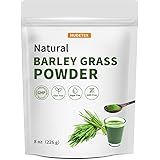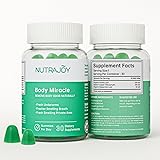The persistent hum of daily stressors often intertwines with the intricate hormonal shifts of menopause. Many women experience heightened anxiety, disrupted sleep, and stubborn weight gain during this life stage. Such symptoms frequently point to an imbalance in the body’s stress response. Specifically, the hormone cortisol plays a critical role. Dr. Janine’s video provides a comprehensive overview of this relationship. It offers seven natural strategies to re-establish hormonal equilibrium. This article will delve deeper into these crucial insights. It aims to empower women seeking a more balanced menopausal transition.
Cortisol and Menopause: An Intricate Dance
The menopausal journey involves significant hormonal changes. Estrogen and progesterone levels decline notably. Progesterone typically acts as a natural buffer. It helps to modulate cortisol, our primary stress hormone. It also calms the nervous system. A substantial reduction in progesterone leaves cortisol unopposed. Consequently, this imbalance can lead to increased anxiety. Irritability and disturbed sleep often follow. These symptoms reflect a system losing its protective hormonal shield.
Furthermore, a phenomenon known as “pregnenolone steal syndrome” can occur. Pregnenolone is a precursor hormone. It can be converted into various vital steroids. These include DHEA, testosterone, estrogen, and progesterone. However, under chronic stress, the body prioritizes cortisol production. It diverts pregnenolone away from other crucial hormone pathways. This preferential shunting exacerbates existing menopausal hormone deficiencies. It leads to a cascade of related symptoms.
Cortisol also profoundly impacts our circadian rhythms. These are the body’s natural sleep-wake cycles. Cortisol should peak in the morning. This provides energy and alertness. Levels should gradually decline throughout the day. High cortisol at night is problematic. It can suppress melatonin production. Melatonin is essential for restful sleep. Disrupted sleep patterns further compound menopausal discomforts.
Moreover, cortisol influences metabolic health. Elevated levels raise blood glucose. They promote fat storage, especially in the abdominal region. This visceral fat is metabolically active. It contributes to systemic inflammation. It also increases the risk of various health issues. The common experience of “menopause belly” is often linked to this cortisol effect. Balancing cortisol is therefore essential for holistic menopausal health.
Seven Foundational Strategies for Cortisol Balance in Menopause
Addressing cortisol imbalances requires a multi-faceted approach. Dr. Janine’s recommendations offer actionable pathways. They focus on natural interventions. These strategies support the body’s innate healing capabilities. They help restore equilibrium during menopause.
1. Reconnect with Nature’s Rhythms
Spending time outdoors offers profound benefits. Natural sunlight exposure is vital. It helps regulate our circadian rhythm. This process supports healthy cortisol patterns. Grounding, or earthing, is another powerful practice. Direct skin contact with the earth can reduce inflammation. It also improves sleep quality. This simple act helps balance the nervous system.
Nature immersion reduces psychological stress. It lowers perceived stress levels. This in turn positively impacts cortisol secretion. Incorporating daily walks in green spaces is beneficial. Cultivating a garden can also be therapeutic. These activities are more than leisure. They are essential components of hormonal health. Following nature’s prescription supports overall well-being.
2. Mitigate EMF and Blue Light Exposure
Man-made electromagnetic fields (EMFs) are ubiquitous. Wi-Fi routers, cell phones, and electronic devices emit them. These fields can disrupt cellular function. They may act as endocrine disruptors. This impact can negatively affect hormonal balance. Reducing exposure, especially during sleep, is prudent. Turning off Wi-Fi at night helps minimize interference.
Blue light toxicity is another significant concern. Screens emit high levels of blue light. Exposure in the evening disrupts melatonin production. This directly impacts sleep quality. It also interferes with healthy cortisol rhythms. Using blue light blocking glasses in the evenings is recommended. Dimming room lights further supports natural hormone signaling. These adjustments safeguard hormonal health.
3. Optimize Sleep Hygiene for Restorative Rest
A consistent sleep schedule is paramount. It anchors the body’s circadian biology. Going to bed and waking at the same time is key. This regularity trains the body. It supports optimal hormone release. Creating a cool, dark, and quiet sleep environment also helps. These conditions facilitate deep, restorative sleep. This process directly lowers cortisol levels.
Menopausal symptoms, like hot flashes, can disrupt sleep. However, prioritizing sleep hygiene remains crucial. Incorporating relaxation techniques before bed is helpful. Deep breathing or meditation can calm the mind. Adequate sleep allows the body to repair. It supports the intricate balance of all hormones. Restorative sleep is non-negotiable for menopausal women.
4. Address Leptin Resistance for Metabolic Harmony
Leptin is a hormone signaling satiety. It also regulates energy balance. Leptin resistance occurs when cells stop responding to leptin. The brain does not receive signals of fullness. This can lead to overeating and weight gain. It also impacts other metabolic hormones. Insulin sensitivity is often compromised alongside leptin resistance. This creates a vicious cycle.
Fixing leptin resistance is vital for weight management. It also stabilizes blood glucose. This, in turn, helps regulate cortisol. Strategies include timed eating windows. Avoiding late-night meals is beneficial. Consuming a nutrient-dense diet also supports leptin signaling. Prioritizing protein and healthy fats is important. Reversing leptin resistance is a cornerstone of metabolic health.
5. Strategic Carbohydrate Intake and Deuterium Awareness
Dietary choices heavily influence blood glucose. Refined carbohydrates cause rapid spikes. This challenges insulin sensitivity. It also exacerbates leptin resistance. Limiting these “empty” carbohydrates is wise. Focusing on complex carbohydrates is better. Furthermore, consuming seasonal foods is highly recommended. These foods are often lower in deuterium. Deuterium is a heavy isotope of hydrogen. High deuterium foods can interfere with mitochondrial function. This affects cellular energy production.
A seasonal diet aligns with ancestral eating patterns. It supports the body’s natural rhythms. Lower carbohydrate intake stabilizes blood sugar. This prevents cortisol spikes. It also improves insulin sensitivity. Understanding deuterium’s role adds another layer. It emphasizes consuming fresh, unprocessed foods. This approach profoundly supports hormonal balance.
6. Implement Regular Full-Body Detoxification
Our bodies accumulate toxins constantly. These come from food, environment, and daily products. A high toxic load stresses detoxification organs. The liver, kidneys, and gut become overburdened. This impedes proper hormone processing. Hormones can become recirculated instead of eliminated. This contributes to hormonal imbalances. Regular full-body detoxifications are therefore essential.
Dr. Janine recommends detoxing three to four times annually. This supports the liver’s function. It enhances elimination pathways. Herbal medicines can aid this process. Specific combinations stimulate organ efficiency. Reducing toxic exposure is also key. Choosing organic foods and natural products helps. A clean internal environment supports optimal hormonal health. It directly impacts cortisol regulation.
7. Embrace Herbal Adaptogens and Botanicals
Nature offers powerful remedies. Certain herbal medicines are remarkable. They help balance cortisol and stress responses. Adaptogenic herbs like Maca are excellent examples. Maca helps the body adapt to stressors. It supports adrenal health. This directly influences cortisol production. It promotes hormonal equilibrium.
Other botanicals target specific menopausal symptoms. Black cohosh supports estrogen balance. Chaste tree berry (Vitex agnus-castus) helps progesterone levels. Motherwort is beneficial for cardiac symptoms. These can often correlate with hormonal shifts. Specific herbal combinations can also induce restful sleep. They alleviate anxiety. Consulting a knowledgeable practitioner is always advised. Herbal medicine offers targeted, natural support for women during menopause. They provide robust support for balancing cortisol in menopause.











